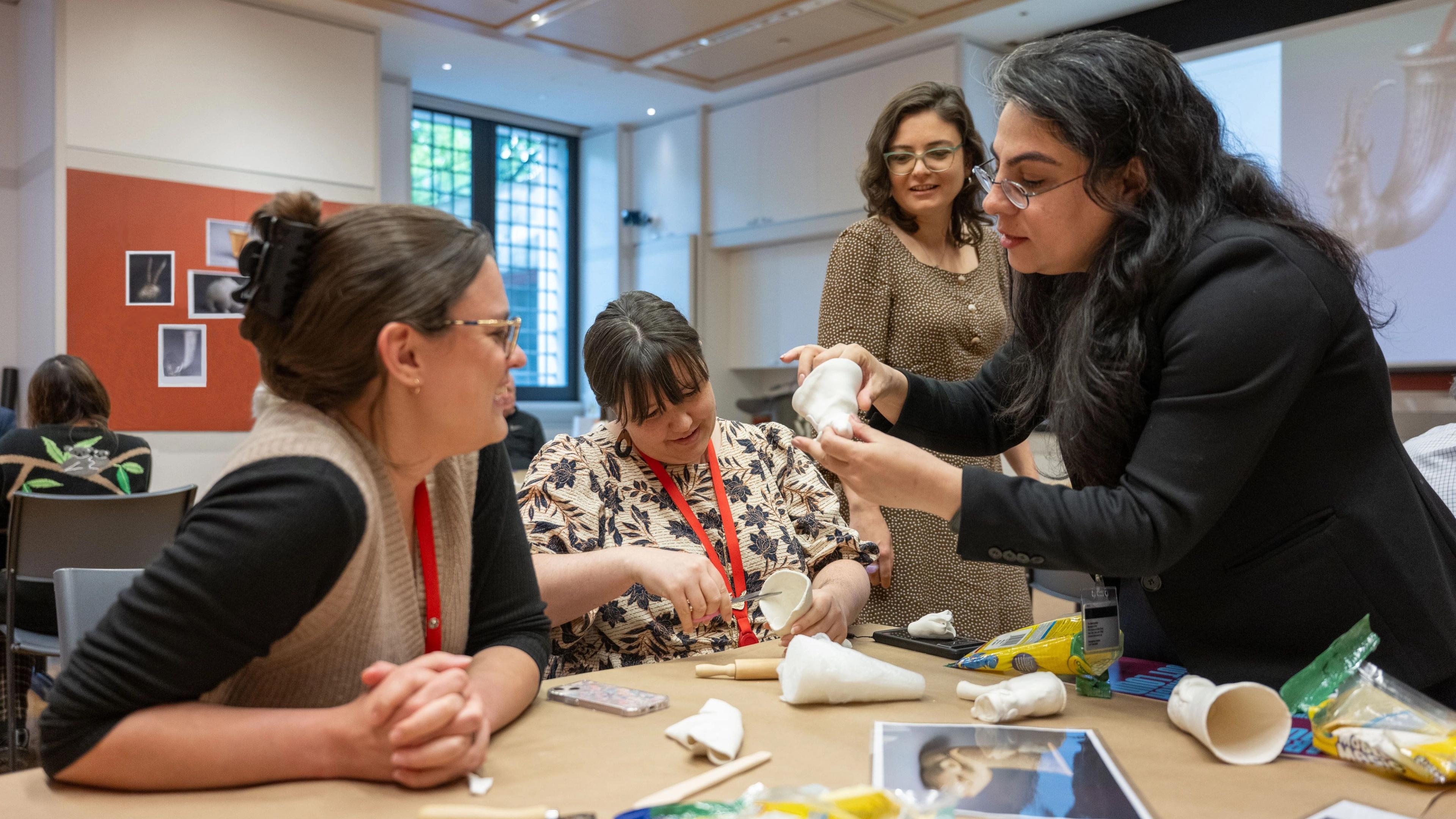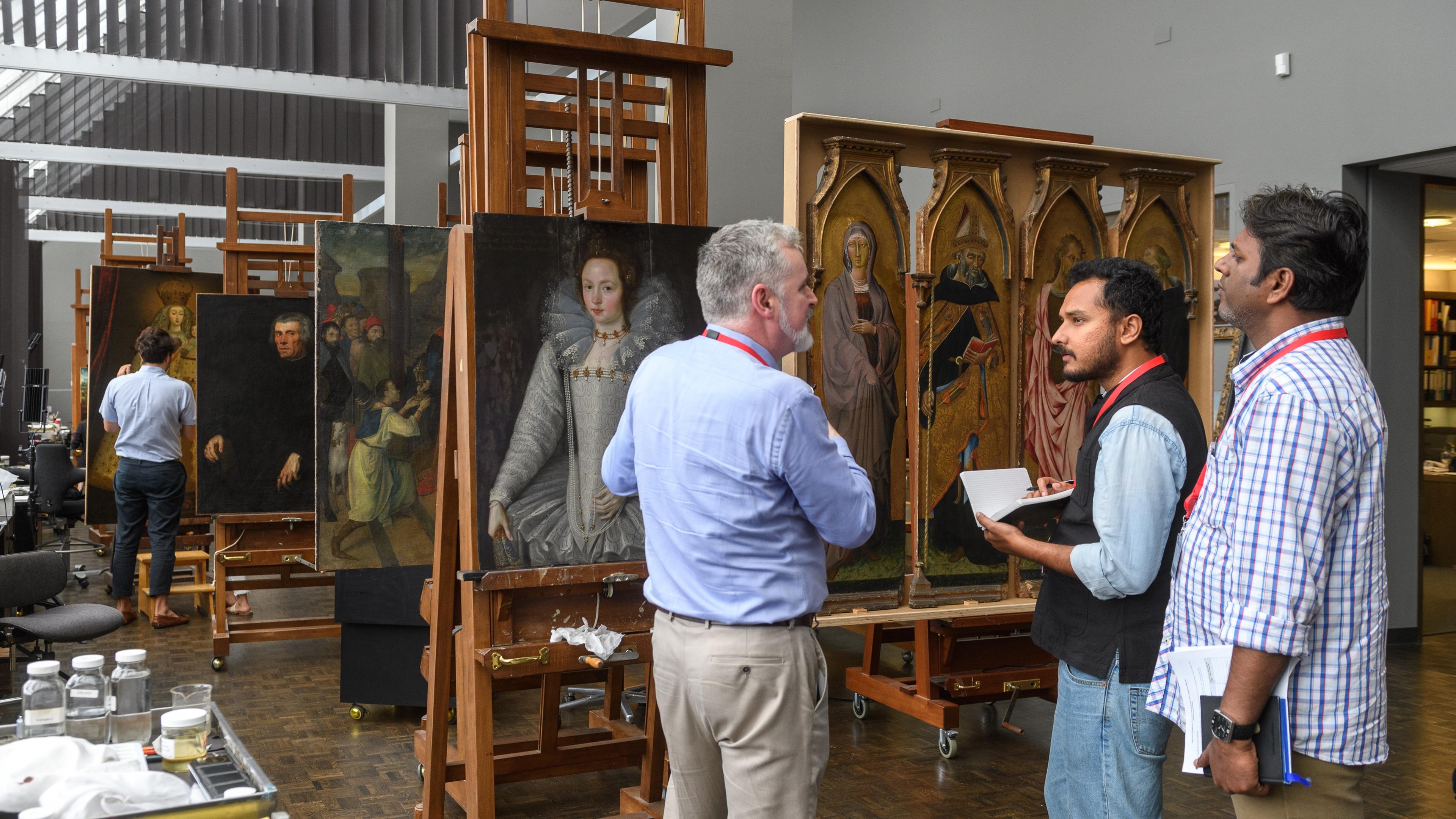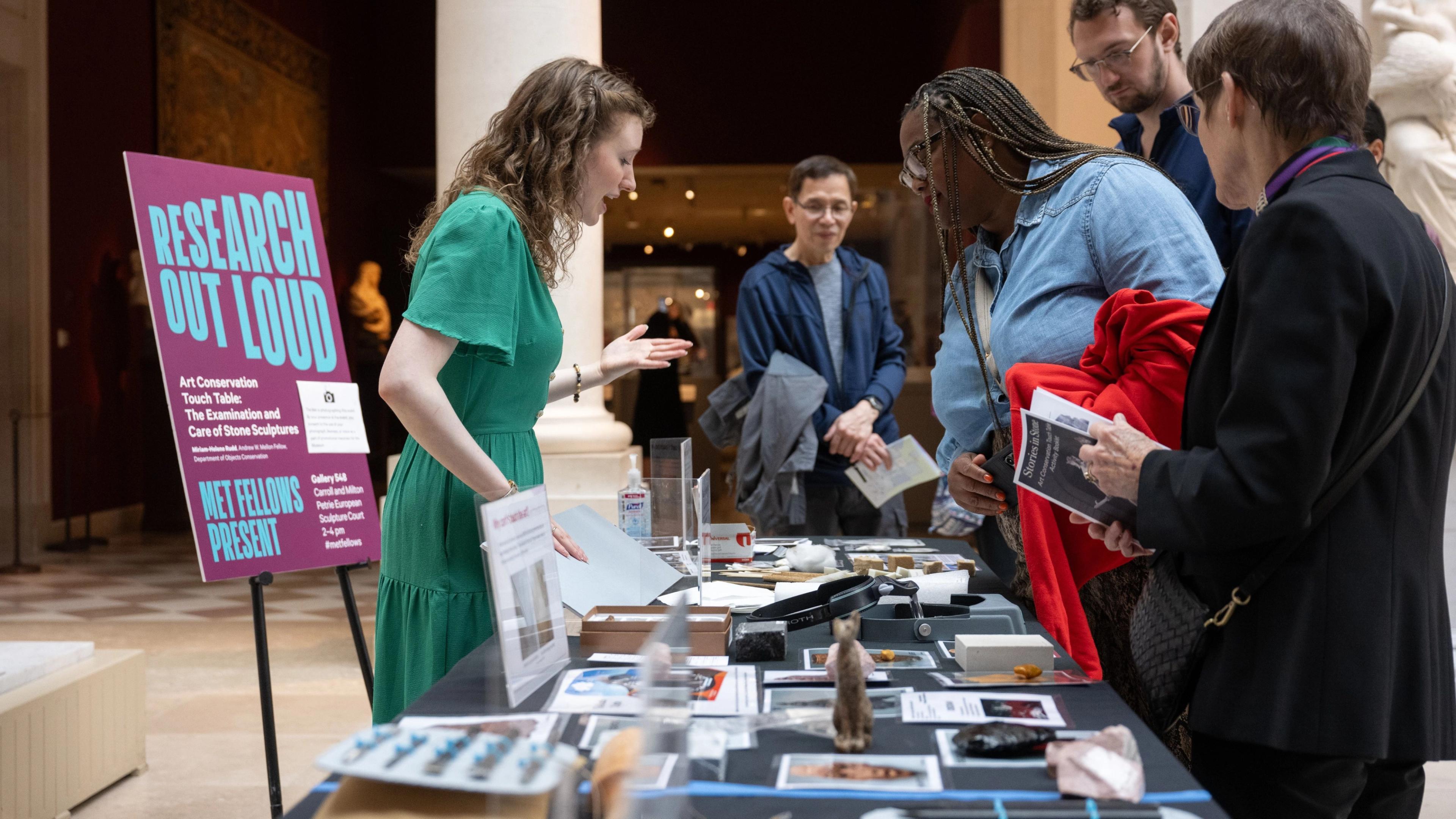Slifka Foundation Interdisciplinary Fellowship
About the Fellowship
The Slifka Foundation Interdisciplinary Fellowship is a one-year fellowship that combines art historical research with training in the technical investigation of The Met collection.
Slifka fellows work with a curatorial mentor and a conservation and/or scientific research mentor on a specific project proposed by a curator and/or conservator or scientist. While open to both predoctoral and postdoctoral fellows, this fellowship is primarily intended to provide those at an early stage of their career with training in technical art history and investigation. If the fellow is predoctoral, they may be permitted to spend some portion of their time on their dissertation, to be determined by mutual agreement with their supervisor.
2026–2027 Project: Medieval Sculpture at The Met
The Department of Medieval Art and The Cloisters, in collaboration with the Departments of Objects Conservation and Scientific Research, invites applications from scholars of late medieval sculpture (ca. 1350–1550) to contribute to a planned refresh of the permanent collection galleries at The Met Fifth Avenue. These spaces, prominently featuring monumental sculptures from western Europe, have remained largely unchanged for over fifty years, foregrounding a vision of Christian art as stylistically beautiful but ultimately abstract in meaning. In the new installation, we seek to reanimate the art of the late Middle Ages through the lens of lived experience, with some focus on materials and workshops.
While many works of sculpture will be studied and treated as part of the gallery refresh, one of the most ambitious comprises two life-sized tableaux from the Château de Biron, France. Extraordinarily powerful in scale and complexity, these early sixteenth-century sculptures originally sat at eye level and audaciously incorporated figures of their patrons as active participants in biblical events. The ensemble—which retains significant polychromy—will be the focus of an extensive conservation treatment and technical study. Art historical research on its original architectural context and related artworks would add a much-needed dimension to this undertaking. While this project would be a significant component of the fellowship year, there would also be opportunities for similar art historical work on a selection of additional sculptures that are closely related to the fellow’s own area of expertise.
Working to support the technical and scientific analysis performed by conservators and scientists, the fellow will conduct research in the relevant archives and libraries, updating scholarship on the collection while also developing labels, catalogue entries, and other didactic materials connecting the sculptures to the themes of the reinstallation. The ideal candidate will have a working knowledge of French and at least one additional European language, a research focus in late medieval or early modern sculpture, some experience with databases, and a commitment to working closely with original objects.
Slifka fellows are permitted time to work on their doctoral dissertations in addition to their fellowship project.
- PhD candidates through senior postdoctoral scholars are eligible to apply.
- Junior fellowships are awarded to those applicants who are working on their PhD at the time that they submit their application. Applicants who receive their PhD after the submission deadline are not eligible for the senior fellowship.
- Senior fellowships are awarded to those who hold a PhD on the date of application submission and/or are well-established scholars.
- All fellows are expected to have valid US work authorization for the entire duration of the fellowship. If you are not a US citizen or permanent resident, please review the additional details in the Fellowship Application FAQs, and ensure you have confirmed your eligibility prior to submitting your application.
Stipend
- Junior fellows receive a stipend of $47,000
- Senior fellows receive a stipend of $57,000.
- Travel: Both junior and senior fellows also receive an additional $6,000 for research travel (maximum of six weeks).
- Health insurance: Fellows also receive an additional monthly payment to offset the cost of health insurance.
Application deadline: Friday, October 17, 2025, 5 pm ET
Notification date: All applicants will be notified by the last Friday in February following the application deadline.
Fellowship period: September 1, 2026 through August 31, 2027
All applications, including letters of recommendation, must be submitted online and in English. The Met will not accept applications or related materials via email, postal mail, or in person.
Slifka Fellowship applicants must submit the following (as .docx or .pdf files):
- A statement of interest, not to exceed 1,000 words, regarding the Slifka Foundation Interdisciplinary Fellowship project. Please describe your area(s) of research and specialization, and explain how this fellowship is uniquely suited to your research and career goals. If you are a PhD candidate currently writing your dissertation, please include a description of your project and, if relevant, how you can utilize the Museum’s resources and The Met collection to achieve your goals.
- A brief schedule of work to be accomplished during the fellowship period (separate from the statement of interest).
- A brief schedule of travel required (maximum of six weeks) during the fellowship period, if applicable.
- A curriculum vitae of education, professional experience, honors, awards, and publications.
- Three letters of recommendation. Applicants must submit at least one academic and one professional letter of recommendation. All letters must be submitted in English and uploaded directly by the recommenders. Recommenders may not be current Met staff, contractors, or volunteers.
- Official transcripts (undergraduate and graduate)—for predoctoral (junior) fellowship applicants only
If you have not yet completed your PhD, you must upload a copy of your undergraduate transcript and graduate transcript. If you have transcripts from more than one institution for either category (undergraduate or graduate), please upload them as one combined file.
What to Expect After Applying
Once submitted, staff in relevant department(s) first review your application to assess the quality and feasibility of your application according to the criteria set forth on the evaluation rubric. If your proposal meets the necessary criteria, the department(s) recommend it for review by The Met’s Grants Committee, which consists of members of The Met’s professional staff appointed by the Museum’s Director and Chief Executive Officer. The committee reviews all aspects of each application submitted, using the evaluation rubric (see above). Following this assessment, the Grants Committee submits final award recommendations to the Director and CEO for review and approval. You are notified regarding the result of your application by the last Friday in February.
Please note that due to the lengthy and multiperspective review process, we are unable to provide individual feedback on applications that are not selected.
Selection Criteria
Applications are evaluated based on the criteria set forth in The Met’s evaluation rubric. Reviewers consider all your application materials: your statement of interest, digital interpretation statement, writing sample, CV, and letters of recommendation. They use the rubric to score your application, but this serves only as a guide. There is no cut-off score for progressing in the review process or being awarded a fellowship. View the evaluation rubric. (PDF)
Life as a Met Fellow

Research Support, Community, and Professional Development
Fellows receive financial support, time for research, exposure to museum work, and access to The Met collection and libraries. Weekly programs and workshops bring fellows together with Met staff to share ideas, develop professional skills, and discuss current issues in museum practice.

Departmental Placement
Fellows are embedded in a curatorial, conservation, audience engagement, or scientific research department with a dedicated Met staff supervisor. Browse curatorial and conservation departments. The Education, Digital, Live Arts, and Archives departments also host Interdisciplinary Fellows.

Research Out Loud: Met Fellows Present
Research Out Loud: Met Fellows Present connects the fellows with the public through a series of gallery programs and research presentations that offer cross-cultural and transhistorical connections throughout The Met collection.